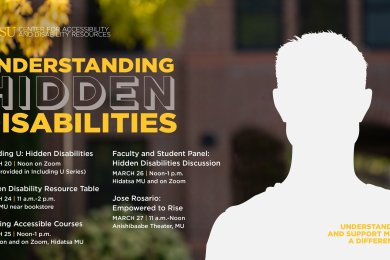
Once students complete the program, they will have the skills and knowledge they need to effectively step into leadership positions to fill workforce needs and make a difference in their district.
NDSU’s leadership development apprenticeship is shaping the future leaders in K-12 education in the state through a no-cost degree program.
The five-semester, fully-online program, which started this fall, currently has 11 school administrators across three districts in the state working toward a master’s degree in K-12 leadership and their principal credential. The program is open to anyone in a K-12 administrative position, including assistant principals, deans of students and instructional coach leads.
Once students complete the program, they will have the skills and knowledge they need to effectively step into leadership positions to fill workforce needs and make a difference in their district.
Hollie Mackey, NDSU associate professor of educational and organizational leadership, said the leadership development apprenticeship is addressing the shortages in high-quality leadership and the decline in superintendents in North Dakota.
“Our students step out of our doors prepared to lead, and it’s evident,” Mackey said. “There’s no back-filling, there’s no remediation, there’s no blind spots for our students. And that’s what we’re trying to create is really a cadre of people who are ready on day one to step into leadership roles and make effective change within districts.”
Chris Ray, NDSU professor and head of the School of Education, agrees.
“In order to have the high-quality educational leaders the state needs, we must make sure they are very well prepared. This model combines classroom learning with applied experience in partnering districts to ensure newly credentialed principals are ready to hit the ground running,” Ray said. “Ultimately, that’s going to lead to greater success not only for them, but also for their teachers and, most importantly, their students. Additionally, it’s going to lead to greater retention in their roles so the impact of the program is going to multiply over time.”
Of the 11 current students, nine work in Fargo Public Schools, one works in Central Cass schools and one works in the Wahpeton School District. Mackey said having the program available online ensures it’s accessible for everyone.
“The goal is maximum accessibility,” she said. “With that, we’ve shifted our entire master’s program to have both in-person and online options for people across the state so we can better support leadership development in rural communities.”
Earlier this year North Dakota became the first state in the country to receive approval through the Department of Labor to offer the leadership development apprenticeship after the state’s Department of Public Instruction made the request. While teacher apprenticeships were already available, no apprenticeship existed for leadership development.
NDSU became the first institution in the state to receive funding for the program after applying for the Aspiring Principals Pipeline Grant. The $150,000 in grant funds cover the tuition, fees, books and materials for the 11 current students.
“At the beginning of the semester, my brain was exploding with so much excitement due to the depth of learning I was experiencing in my classes,” said Sydney Azure, a student in the program. “That excitement has not subsided. In each class session, I am still excited about the content, collaboration, and deeply academic faculty that I get to learn from.”
Students take a variety of courses to obtain hands-on practical skills in organizational leadership; curriculum; social, cultural and political dimensions; ethics; research; administration of K-12 schools; educational law and policy; personnel, supervision and staff development; and finance. Additionally, students have a full-year practicum experience completing structured activities outside of the classroom to build their portfolio.
Students also are assigned a mentor principal at their school. Mackey said a group of principals across the state with ties to the NDSU School of Education are taking the lead on the professional development for the students.
Mackey, who leads the grant and program, said the districts NDSU has partnered with have been supportive in ensuring the current students have ample opportunities to grow.
“The goal is to support a grow-your-own-model and the districts have been exceptionally good partners in thinking through ‘if we’re doing this, how do we support those folks?’ And so the districts are working very intentionally with finding opportunities for the students in the cohort to be actively involved in their district, but then be able to be actively involved in a way that encourages them to stay,” she said.
Mackey said the leadership development apprenticeship has already gained a lot of interest. Additional funding from the Department of Labor is possible down the road with the potential for more students to join the next cohort.
As a student-focused, land-grant, research university, we serve our citizens.



